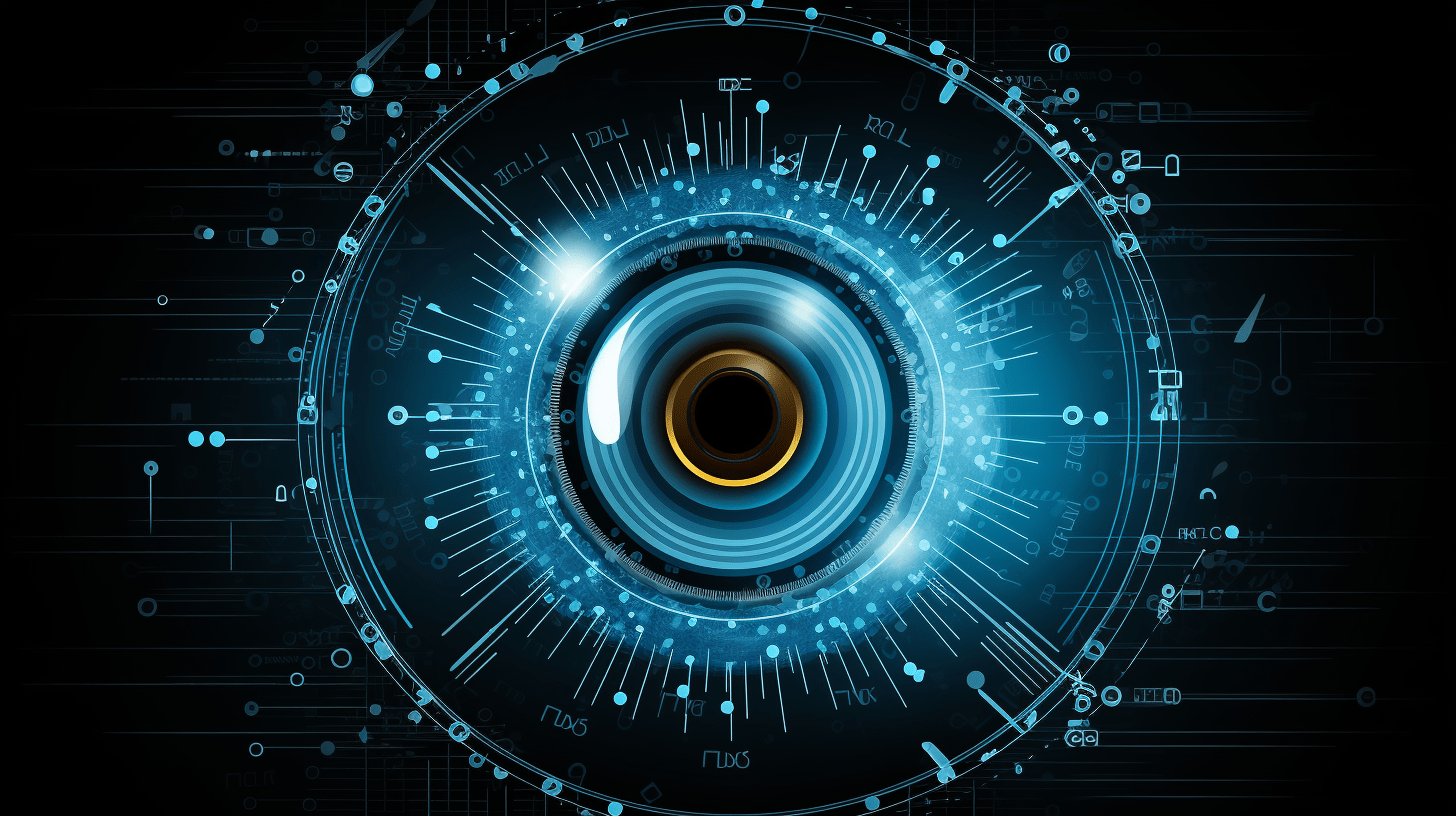What is biometric surveillance?

Biometric surveillance is a technological tool that is profoundly changing security methods. More reliable than traditional techniques for passwords and other PIN codes, this technology is based on individual identification using physical characteristics. Face and voice recognition, digital fingerprints… The process offers multiple benefits, but not without raising several concerns and questions. In this article, we’ll look at the principles and limits of biometric surveillance.
Definition of biometric surveillance
Biometric surveillance or recognition is a technology that allows for the identification of an individual based on their physical, biological and/or behavioral characteristics. As this data is unique and permanent, it cannot be falsified. It can include elements such as DNA, digital fingerprints, facial features, hand shape, the iris, and even voice. Biometric surveillance uses artificial intelligence to reinforce data protection and secure sensitive locations.
Uses and benefits of biometric surveillance
Biometrics offers improved security for personal and sensitive data. This process is much more reliable than the password and PIN code systems commonly used. Biometric recognition allows for a reduction in identity theft, fraud and shoplifting risks. It can also help to secure premises and property. Quick and easy to use, it also presents a great benefit in traceability.
Biometric recognition can also be used by businesses to boost efficiency and productivity. This way, employees can be identified by face recognition and/or digital fingerprints to enter and exit their working areas.
This data is considered to be sensitive, and thus required the use of strict framework. The CNIL (French Data Protection Authority) highlights that this data cannot be processed without the consent of the data subjects. Border controls, online creation or renewal of identification documents, event surveillance in big cities, access to banking services, etc.: Biometric recognition has become an increasingly present part of our daily lives over recent years. Its ease of use and reliability are unrivaled, but this process raises a lot of questions regarding its impact on individual rights and freedoms.
Security protocols for the 2024 Olympic Games
A new step has been taken in the field of algorithmic or automated video surveillance (AVS) with the deployment of camera-based biometric surveillance. On 23 March 2023, the French National Assembly voted on the Draft Act relating to the 2024 Olympic and Paralympic Games. This is an experimental project which offers the possibility of implementing biometric surveillance in public spaces before, during, and after the Olympic Games. Images recorded by drones and surveillance cameras can thus be used for event security purposes. The aim? To spot any behaviors that are deemed suspicious, along with crowd movements, in order to adapt the security protocol.
Concerns and regulations regarding privacy protection
Biometric surveillance and its real-time recognition technology raises multiple concerns. This is because, whilst these technologies must be used in compliance with the General Data Protection Regulation (GDPR), there’s no exact legal framework, making loopholes possible. It’s stipulated that free consent is mandatory for the collection of the data necessary for using face recognition. Use of biometric identification cannot be imposed on an individual, and the data collected cannot be stored afterwards.
In response to these concerns and this legal ambiguity, on 31 May 2023, the French Law Commission adopted a law proposal concerning the legislative framework for biometric recognition in public spaces. The objective: “Preventing a surveillance society”. In particular, this law prohibits face recognition without the agreement of the data subjects. However, biometric surveillance protocols remain usable, but must be subject to strict framework.
The role of the European Parliament in data protection
It’s in this aim of creating more of a sound framework for biometric surveillance processes that the European Parliament voted on 14 June 2023 for the prohibitions of remote biometric recognition. The Parliament prohibits the use of these surveillance technologies for purposes of discrimination based on gender, skin color, or political opinions. It also prohibits biometric surveillance of immigrants, refugees and/or asylum-seekers.
Yet, the European Parliament does not prohibit the use of biometric surveillance altogether. The face recognition process can therefore be used in anti-terrorism protocols, under the aegis of the competent judicial authority.
Building a stricter framework for biometric surveillance
To create a framework for algorithmic or automated video surveillance (AVS), the French Data Protection Authority (CNIL) has revealed a strategic plan that will be implemented until 2024. In its line of sight: The use of “enhanced” cameras, which are installations equipped with artificial intelligence filming public roads and streets. Capable of counting individuals circulating on foot, car or bike in real time, these technologies provide valuable information in terms of security, but they also drum up a lot of questions around their purpose. Is biometric recognition justified in public spaces, and how is the collected data used? Is the privacy of individuals fully respected? What are the risks of large-scale biometric surveillance for the population? As part of its strategic plan, the CNIL will undertake to challenge the practices of government departments and forces, as well as those of commercial uses, in order to ensure compliance with the legal framework for video surveillance.
Veesion: An innovative solution that doesn’t use biometrics
Here at Veesion, we’ve developed cutting-edge technology that enables the protection of people, property, and goods. This AI-driven software is designed for use with the video security systems installed in most stores. Our solution complies with the applicable legislative framework, namely the French Code of Interior Security and the General Data Protection Regulation (GDPR). With this in mind, we don’t detect, analyze or process biometric data, upholding the strictest respect for the privacy of customers and staff alike.



